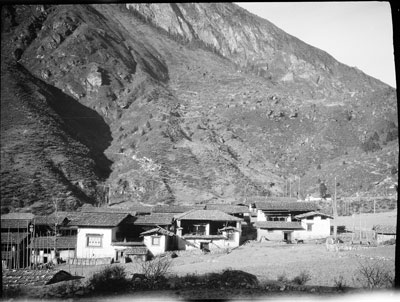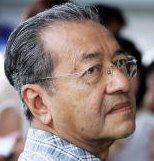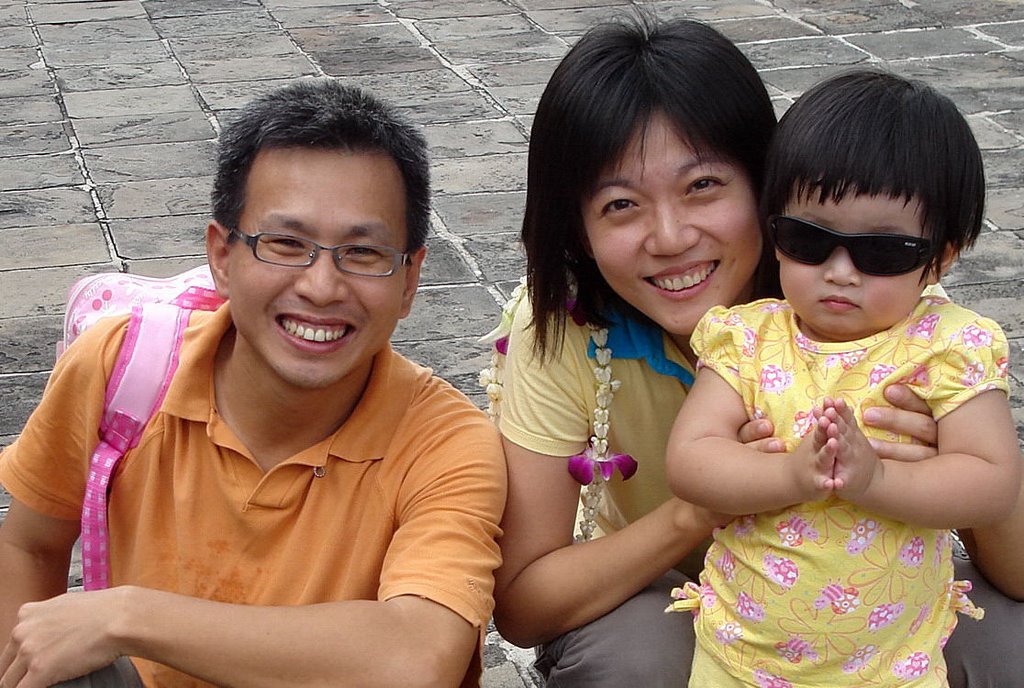A colourful profile of Prince Alwaleed in The Raffles Conversation of The Business Times. The profile shows a shrewd and dynamic businessman, who also happens to be a prince.
But could he have made such spectacular investments without his family wealth, political partronage, and his bevy of highly paid advisors?
Business Times - 12 May 2007
The way of the prince
Legendary investor Prince Alwaleed bin Talal talks to VIKRAM KHANNA about his investment philosophy and his view of risks
 WHEN I enter the lobby of the Raffles Hotel at the appointed time, Prince Alwaleed bin Talal is already there, seated on a sofa outside the Tiffin Room, in rapt conversation with what looks like a group of corporate executives. On the table in front of him are some papers and a laptop. On his left, there is a small flat-screen TV beaming business news. The rest of the lobby is scattered with members of his entourage, as well as some foreign television crews.
WHEN I enter the lobby of the Raffles Hotel at the appointed time, Prince Alwaleed bin Talal is already there, seated on a sofa outside the Tiffin Room, in rapt conversation with what looks like a group of corporate executives. On the table in front of him are some papers and a laptop. On his left, there is a small flat-screen TV beaming business news. The rest of the lobby is scattered with members of his entourage, as well as some foreign television crews.
Presently, I am introduced to His Highness. He explains that he will be back in a few minutes - he wants to change out of his business suit before he heads for the airport - and meanwhile, I should talk to members of his team.
As an investor, US-educated Prince Alwaleed has a legendary reputation. Forbes magazine lists him as the world's 13th richest man, with a net worth of US$20.3 billion in 2007. He is also one of the world's most generous philanthropists, giving away at least US$100 million a year.
Although a member of the Saudi royal family (he is a nephew of the current monarch, King Abdullah), his fortune is derived from savvy investing, rather than oil wealth. Over the last decade and a half, there have been regular reports of his investments - invariably big, bold bets: US$590 million in 1991 in Citicorp, of which he is the single largest shareholder; US$600 million in News Corp over 1997-99, which made him the second largest shareholder in the global media giant after the Murdoch family; more than US$1 billion in what is now Time Warner; a major stake in the Walt Disney Company; a US$115 million (5 per cent) stake in Apple Computer in 1997, when analysts had a 'sell' rating on the company; major stakes in HP, Kodak and Motorola - to name but a few. Time magazine once described him as 'the Arabian Warren Buffett'.
In the hotel industry, the prince is the largest shareholder in the Four Seasons, Movenpick and Fairmont chains. Thanks to his holdings in Fairmont (together with Colony Capital) which was combined with Raffles Hotels and Resorts, the prince has effectively become the controlling shareholder of the Raffles Hotel. In Singapore alone, Prince Alwaleed's companies own or manage eight major hotels. He has a special eye for iconic hotels around the world: he also owns the George V Hotel in downtown Paris, the Plaza in New York, the Savoy in London and the Grand Hotel in Monte Carlo.
Tim Hansing, an affable Englishman who is senior vice-president for acquisitions and development at Kingdom Hotel Investments (the prince's hotel arm), tells me they plan to take the Raffles brand far and wide - to Danang in Vietnam, Manila in the Philippines and Phang Na in Thailand. 'And that will be just a beginning,' he says. 'We're only taxiing now, the plane has yet to take off.'
Mr Hansing also tells me something of Prince Alwaleed's working style. 'His Highness is open for business twenty-four seven,' he says. He does not interfere in the management of the companies or hotels he acquires. 'If there's a problem, our approach is - helicopter in, fix the problem and helicopter out.'
The prince is also both a big-picture person and someone with an eye for detail. He is a devout Muslim, but also liberal and 'gender blind'. His personal pilot is a woman. So is his chief of corporate communications and the head of his charitable foundation.
When it comes to making acquisitions, says Mr Hansing, 'we don't look for good deals'. 'Good deals are for brokers. We look for extraordinary deals.'
Presently, the prince arrives. Trim and fit, dressed in a casual shirt and slacks, he looks younger than his 52 years. His speech is rapid, impassioned, peppered with facts and figures. While he talks, he holds a sobha, or rosary, between his fingers.
We are doing the interview with about a dozen people huddled around and listening intently: his aides, some of his top executives, and other media people. Behind me, television cameras start to roll. The prince seems unperturbed and fully focused.
I start with a general question about how this latest oil boom has changed the Middle East. What is different this time, compared with previous booms?
'Let me talk about Saudi Arabia,' he says. 'In the 1990s, Saudi Arabia accumulated a lot of debt. The total debt reached 660 million riyals. So, right now, when Saudi Arabia is reaping surpluses in the budget, the bulk of the money is going to pay down the debt. It's now 45 per cent of GDP. At its peak, it was 120 per cent of GDP.
'Also, more money is being spent on infrastructure projects - human infrastructure, like training, schools, universities. They have learned many lessons: during the oil boom of the 1970s, there was a lot of waste. But in this oil boom, Saudi Arabia and the Gulf countries are really spending their money more prudently and in areas that need attention.'
I ask the prince - who is known for his politically liberal views in his own country - why Saudi Arabia's economic prosperity does not seem to have led to greater political liberalisation, as one might expect.
'There are political reforms for sure,' he says. 'But the yardstick for the movement of reforms should not be the same as for other nations. Saudi Arabia is in a unique situation. Just like Singapore is in a unique situation. The democracy you have in Singapore is in no way comparable to the democracy you have in the United States and Europe.
'And the kind of liberalisation that is taking place on the political, economic and business front in Saudi Arabia is moving pretty rapidly, although in international terms, it may not be as quick as needed. But by Saudi norms, it's moving very well. Saudi Arabia is a very conservative society, so it takes time for the king and the ruling family to make changes that can trickle down to society and have them approved, accepted and implemented.'
'King Abdullah is a reformer,' he continues. 'If you look at the history of King Abdullah, he has always been reform-minded. I sit down with him and I know how he thinks. I am happy with what he is doing. But what he is implementing has to be in parallel with what the conservative society that prevails in Saudi Arabia can absorb.'
Our conversation turns to the prince's investments. I ask him first how he defines an 'extraordinary investment' of the sort Mr Hansing has mentioned. He nods, as if agreeing that it's exactly what he looks for. 'It means that the company we are looking at has an edge, the entry barriers are very high, and that it can withstand cyclical events or economic downturns,' he says. 'Let's take our holding in Citigroup. It is in 103 countries. It has equity of about US$100 billion. It has assets of US$1.5 trillion. It yields more than US$25 billion of profits every year. Where can you find another bank which can replicate that? It's almost impossible. The entry barrier is so high. The second biggest bank is not even half-way towards Citibank.
'Or let's take the media industry, and News Corp. I am the second biggest holder in News Corp with around 8 per cent equity. There are many localised media companies. But there is no one global media company in the world that matches News Corp. It's in North America, South America, Europe, the Far East and Australia. So, the entry barrier is again too high for anyone to compete.
'Now, take hotels. The Four Seasons. It is the No 1 brand in the world. It is present in five continents. Where can you find another company which, after 50 years, has built such a reputation?
'The George V in Paris, the Plaza in New York, the Raffles in Singapore: Where can you have another Raffles? Even if someone builds one, how can they compete with the history and the heritage? Where can you get another George V? Where can you get another Plaza? It's not going to happen. Not in our lifetime, not in a generation. So these are unique properties. That's what I mean. I look for unique opportunities.
'And these companies, they can also withstand a lot of heat. For example, Citigroup went through a lot of turbulence and bad publicity, but it's still there. It can withstand problems and take off again.'
Unlike a regular fund manager, Prince Alwaleed is renowned for holding on to his investments for a long time rather than taking profit - even when big profits are there for the taking. I ask him why.
'If I had sold my shares in the Four Seasons or Citigroup or News Corp or if I had sold George V Hotel four years ago, I would not be able to reap the full benefits,' he explains. 'These are assets that grow with time. It's not that they've fully matured.
'I do have a trading portfolio as well. I do buy and sell hotels in the United States, for example. But assets like George V and the Raffles, they are unique, they can't be duplicated.'
Attracted as he is to unique, iconic assets, the prince stresses that he's an investor first and foremost. 'It isn't just sentiment; we also look for them to be profitable,' he says. 'The George V, when I bought it about seven years ago, was a three-star hotel from the service point of view. It was not even among the top 1,000 hotels in the world. After we bought it, we shut it down. Then we brought in the management company of Four Seasons. And after a year, George V was ranked the best hotel in the world, and it has remained the best for the next six years. And guess what? It's now valued at about 10 times more - 1,000 per cent more - than the price we bought it at. And we haven't seen the best yet.'
About the Raffles, Prince Alwaleed says: 'We own about 60 per cent. And to the people of Singapore, I would like to say, we are proud to have this jewel of Singapore as part of our portfolio. I compare this hotel to the George V in downtown Paris, the Plaza in downtown New York, and the Savoy in London.'
'Earlier today, I met the President, the Prime Minister and the Senior Minister of Singapore, and I said, rest assured, the Raffles is in very safe hands. And they said, we're happy to have it in safe hands, and Saudi Arabian hands.
'We will develop it further. We have the basic infrastructure here - the name, the reputation, the heritage, the history, the culture. Maybe we need to fine-tune a few things, but I think the basics are in place. And this asset, it is not for sale.'
We turn to the general economic investment landscape. Prince Alwaleed says he is optimistic about the global economy. 'Yes, you are going to have clashes here and there. But in general, there's a lot of tailwind, a lot of competition between nations to grow their economies.'
Where does he see the most interesting investment opportunities in the next three years? 'In Africa, the Middle East and the Far East,' he says. 'That's where my emphasis is now. Selectively, there are opportunities in Western Europe, Eastern Europe and North America - like hotel George V - and not all opportunities in the Far East are good; you have to be selective.'
'But if you set an IRR (internal rate of return) threshold of 20 per cent and above, this automatically eliminates many investments, it takes a lot of the risky and scary ones out.'
On the main risks facing investors, Prince Alwaleed says: 'The world is abundant in cash. There is excess cash, especially in the Far East - some two trillion dollars. So, the big risk is you may have bubbles. There is also the risk of a terrorist attack, God forbid.
'And with globalisation, any small issue can have wider implications. The world has become very small, so a ripple effect can happen with a financial catastrophe or a national catastrophe, like a tsunami, for example, or a terrorist attack. We are not risk-free at all. But when you make an investment, you have to make sure that risks are mitigated or controlled as much as possible.'
Finally, I ask whether he will be making further investments in Singapore. 'For sure, I would not rule out potential investments here,' he says. 'You have all the ingredients for a successful investment - safety, security, freedom of capital, a liberal economy.
'But we already have many assets here. The Raffles, we own. The Four Seasons, we manage; the Regent, we manage; we have two Swissotels, my company Kingdom Holdings International has its office here . . . I was told today by the Prime Minister that I should have honorary citizenship here.'
''But he doesn't know I already have it,' he says with a smile. 'I have it in my heart.'
All in a day's work
AS with his investments, so too with his daily routine. Prince Alwaleed bin Talal is driven, disciplined, precise. Whether at home in Riyadh, or on the road, he lives his life like someone who has little time to waste. Apart from time spent with his family, which is precious, he allows himself little, if any, leisure.
His average day goes like this, he says:
'I wake up every day at 10 am. I read for one hour, watch the news. Then, I go to the office for five hours. After that, I have a break for three hours, which is the time I spend with my family - my family is very sacred to me.
'I go back to the office in the evening, for another four to five hours. Then, I return home around 1am and I immediately go for my exercise - walking, swimming or jogging - for one hour. After I have my shower, I read some more, watch the news again, and write all my reports - political reports, economic reports. And I read my papers, and decide what I will do the next day. All that is for two hours.
'Dinner? Usually, I have only a salad in the evening, but I have a big lunch. I sleep after my fajr prayers (the first of the five daily prayers recited by Muslims). I sleep from 5am to 10 am. So basically, I work around 13-14 hours a day.'
When the prince travels, every hour is accounted for. He asks one of his aides to show me the schedule of his current trip, which is circulated to every member of his entourage. 'As you can see, our travelling schedule is very tight, very disciplined,' he points out. 'We do one month's work in one week. For example, on this trip, we are covering the Maldives, Bali, Jakarta, Singapore, Langkawi, Phuket, Philippines, Hong Kong, Macau, Shanghai and Beijing. Eleven places. My trip to these places is a blend of business, politics and finance. And some leisure.'
The Malaysian government has been going on the offensive to show that it's determined to fight crimes in the country, especially in crime-infested Johor which is next to Singapore.


















